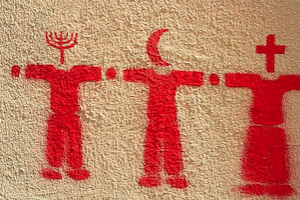CACI Initiative on Religion and the Secular State in Central Asia and the Caucasus
In 2016, the Central Asia-Caucasus Institute & Silk Road Studies Program launched an initiative on documenting the interrelationship of religion and the secular state in the region. This initiative departed from the fact that little systematic reserch had been undertaken on the subject thus far. While there was and remains much commentary and criticism of religious policy in the region, there was no comprehensive analysis available on the interrelationship of religion and the state in any regional state, let alone the region as a whole. The result of this initiative has been the publication of six Silk Road Papers studying the matter in regional states, with more to come. In addition, work is ongoing on a volume putting the regional situation in the context of the Muslim world as a whole.
Case Studies
Each study below can be freely downloaded in PDF format.
Azerbaijan's Formula: Secular Governance and Civil Nationhood
By Svante E. Cornell, Halil Karaveli, and Boris Ajeganov
November 2016
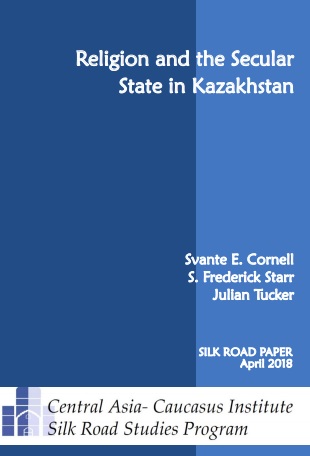 Religion and the Secular State in Kazakhstan
Religion and the Secular State in Kazakhstan
By Svante E. Cornell, S. Frederick Starr and Julian Tucker
April 2018
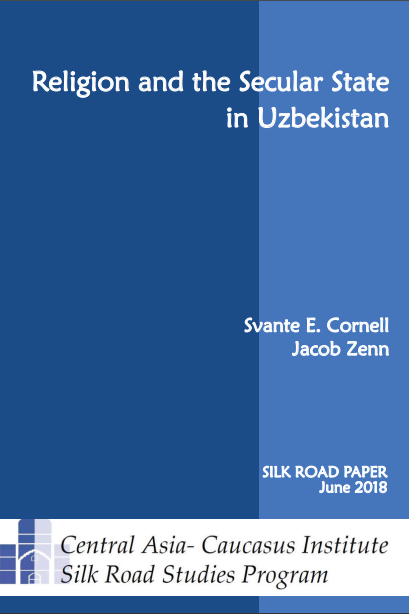 Religion and the Secular State in Uzbekistan
Religion and the Secular State in Uzbekistan
Svante E. Cornell and Jacob Zenn
June 2018
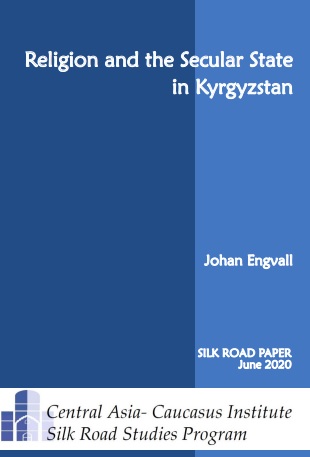 Religion and the Secular State in Kyrgyzstan
Religion and the Secular State in Kyrgyzstan
Johan Engvall
June 2020
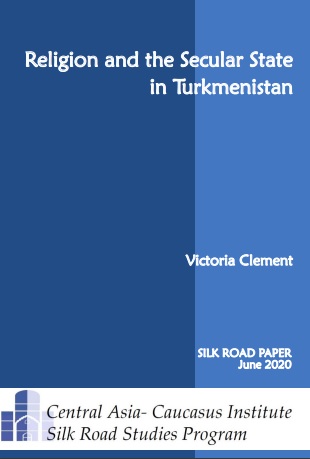 Religion and the Secular State in Turkmenistan
Religion and the Secular State in Turkmenistan
Victoria Clement
June 2020
Articles and Analyses
Svante E. Cornell, "Religion and the State in Central Asia," in Ilan Berman, ed., Wars of Ideas: Theology, Interpretation and Power in the Muslim World, Lanham, MD: Rowman & Littlefield, 2021.
Svante E. Cornell, "Central Asia: Where Did Islamic Radicalization Go?" in Religion, Conflict and Stability in the Former Soviet Union, eds. Katya Migacheva and Bryan Frederick, Arlington, VA: RAND Corporation, 2018.
CACI Forum: Toward "Enlightened Islam"? Religion and the Secular State in Uzbekistan
Toward "Enlightened Islam"? Religion and the Secular State in Uzbekistan
Uzbekistan has remained staunchly secular and taken a firm stand against extremist movements since independence. In recent years, however, Uzbekistan’s policies have shifted from a defensive to a more proactive approach. The recent surge of reforms has affected the religious area as well. Uzbekistan has taken major steps toward the promotion of what President Shavkat Mirziyoyev terms “Enlightened Islam” at home and on the world stage.
This Forum was part of CACI’s ongoing research on the relationship between politics and religion in Central Asia and the Caucasus, and coincided with the release of the Silk Road Paper “Religion and the Secular State in Uzbekistan”, by Svante E. Cornell and Jacob Zenn.
Speakers: Svante E. Cornell, Director, Central Asia-Caucasus Institute at the American Foreign Policy Council
Moderator: Frederick Starr, Chairman, Central Asia-Caucasus Institute
Where: Middle East Institute: 1319 18th Street NW, 20036
When: Thursday, June 7, 2018 from 4:00 - 5:30 pm
Full Recording of the Forum Below:
Uzbekistan: A New Model for Reform in the Muslim World
By S. Frederick Starr and Svante E. Cornell
Central Asia-Caucasus Analyst
May 12, 2018
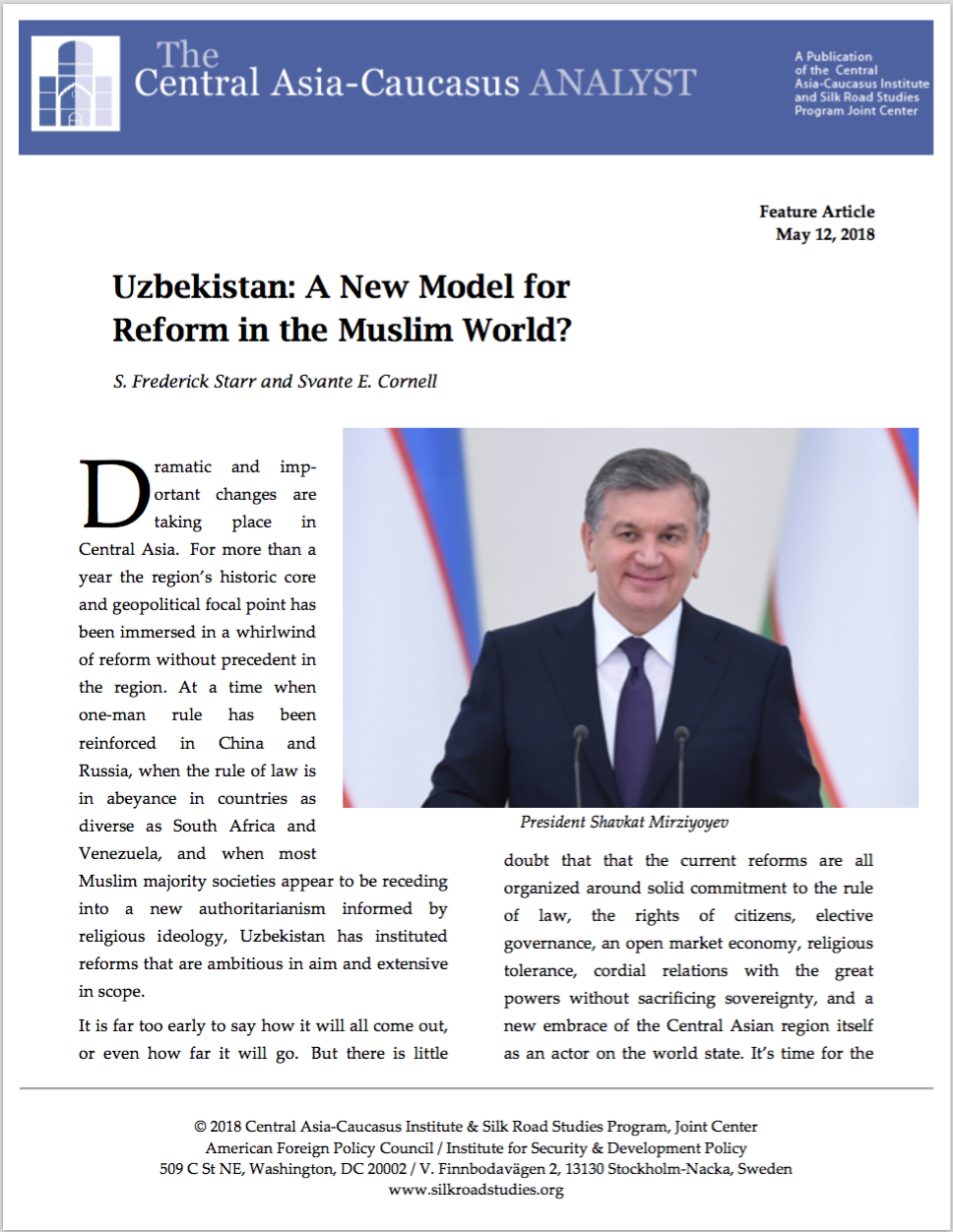 Dramatic and important changes are taking place in Central Asia. For more than a year the region’s historic core and geopolitical focal point has been immersed in a whirlwind of reform without precedent in the region. At a time when one-man rule has been reinforced in China and Russia, when the rule of law is in abeyance in countries as diverse as South Africa and Venezuela, and when most Muslim majority societies appear to be receding into a new authoritarianism informed by religious ideology, Uzbekistan has instituted reforms that are ambitious in aim and extensive in scope.
Dramatic and important changes are taking place in Central Asia. For more than a year the region’s historic core and geopolitical focal point has been immersed in a whirlwind of reform without precedent in the region. At a time when one-man rule has been reinforced in China and Russia, when the rule of law is in abeyance in countries as diverse as South Africa and Venezuela, and when most Muslim majority societies appear to be receding into a new authoritarianism informed by religious ideology, Uzbekistan has instituted reforms that are ambitious in aim and extensive in scope.
It is far too early to say how it will all come out, or even how far it will go. But there is little doubt that that the current reforms are all organized around solid commitment to the rule of law, the rights of citizens, elective governance, an open market economy, religious tolerance, cordial relations with the great powers without sacrificing sovereignty, and a new embrace of the Central Asian region itself as an actor on the world state. It’s time for the world to take stock of this startling development.


